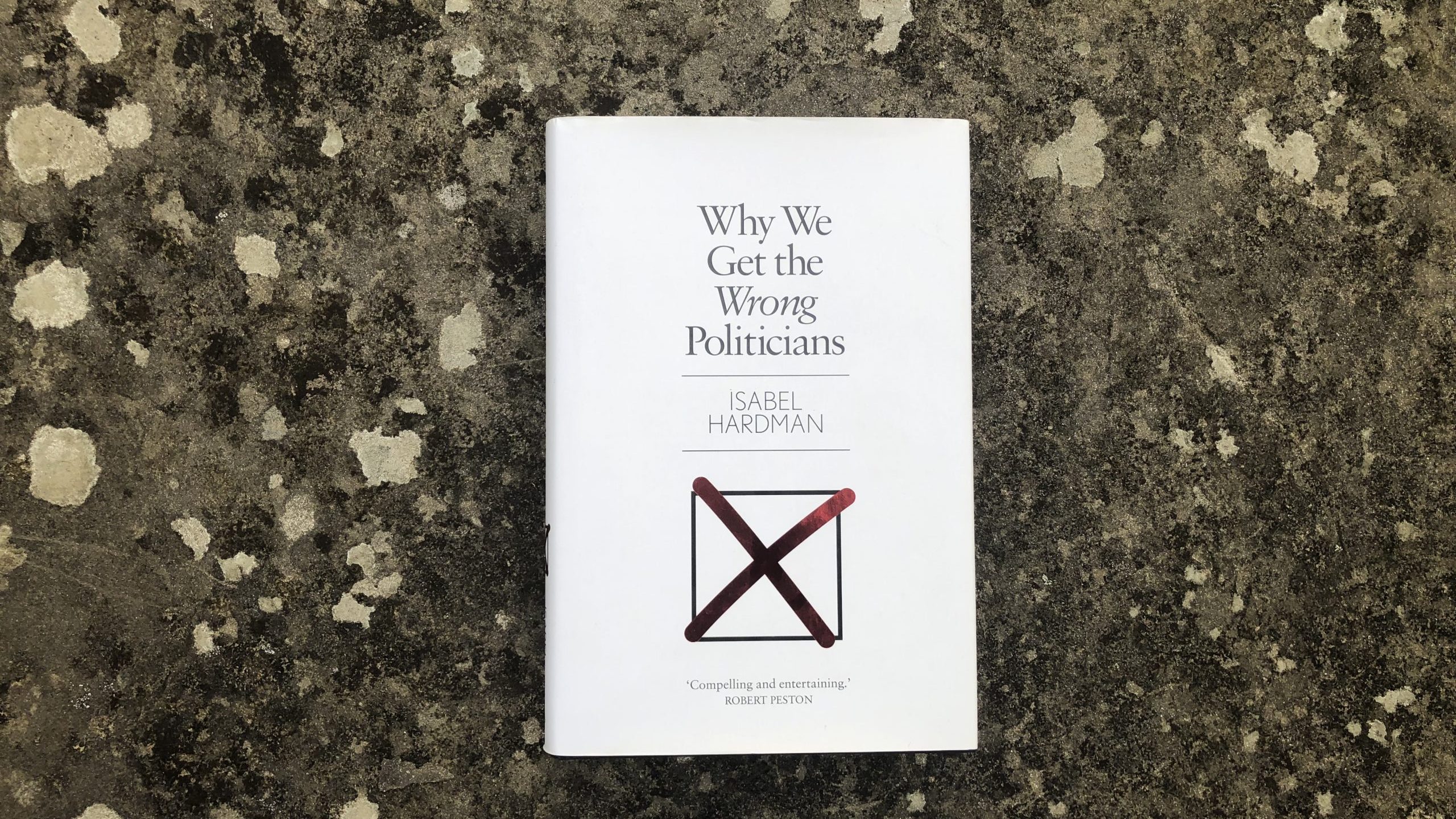 Andrew Papanikitas is Deputy Editor of the BJGP and a GP in Oxford. He is on twitter: @gentlemedic
Andrew Papanikitas is Deputy Editor of the BJGP and a GP in Oxford. He is on twitter: @gentlemedic
I think you should read this book. In fact, I think all voters should read this book, especially those of us who have had to endure the bizarre Victorian Punch and Judy show of Anglo-American politics in the last decade, a politics that seems to resemble feudalism (please look this up) with lip-service to democracy. If you are wondering why a political party espousing family-values elected Boris Johnson as their leader, why an environment secretary voted against protection of UK waterways from untreated human sewage, or why billions of pounds of public money were spent on unusable protective equipment in a Pandemic, you may well find answers here. And the depressing fact is that this book was published in 2018. Cassandra-like, the author warned us, and we did not listen. This is not a book about a political party or ideology however, it is about politicians and political life in the UK.
Cassandra-like, the author warned us, and we did not listen. This is not a book about a political party or ideology however, it is about politicians and political life in the UK.
With a wealth of research, interviews, and experience as a seasoned political journalist, Hardman’s book is divided into three sections: Why we get the wrong politicians, why we get the wrong policies, and can we get the right politicians? It is a relief to get to that last bit, because after the first two sections, benevolent dictatorship begins to sound quite appealing. We get the wrong politicians because, many of the right people, cannot financially afford to run, and are deterred from running for parliament by aspects of the job and the prejudices of what Hardman refers to as the ‘Westminster bubble.’ Hardman focuses on people in the first section, giving an account of political life that runs from getting in to parliament to leaving.
Along the way she dispels a few myths, for example the lack of politicians’ ability to controls local events through direct means. In their surgeries politicians are often asked to help settle local grievances. Available immediate remedies either consist in writing a stern letter/raising a stink or helping a constituent navigate the system. They cannot of themselves ‘order’ the correction of an injustice.
Hardman also does not shy away from the toxic aspects of politics with chapters on ‘Getting caught’ – money and sex feature prominently, including sexual assault by MPs- and a section on illness with emphasis on mental health and substance misuse.
The section on why we get the wrong polices is altogether more depressing. Hardman makes a compelling case that professional politics is almost exclusively populated by different kinds of elite -chiefly a political one. Those who live in the political bubble may not ‘get’ how policies are going to take effect. ‘Sometimes it takes a policy to be implemented before the idiocy is revealed,’ Hardman writes about the 2012 budget in chapter nine. It is more about the bubble than the background, argues Hardman citing the historical example that William Wilberforce was the son of a wealthy merchant yet campaigned to end the slave trade. The key to this section however is the problem of patronage – Politicians, if they are to retain both their seat in the house and access to the levers of power, must command popularity in the form of votes and be on good terms with or in the government (the executive). This can mean they have to be ‘all things to all men’ and ‘yes men.’ ‘Yes men’ may find themselves pointless and ingratiating questions in parliamentary debate and always voting with the party. Those how vote against their own parties can find themselves alienated from both party and electorate. MPs have to divide time between constituency (some more than others) and the house. Hardman points out that with this, and serving on various parliamentary committees, there is relatively little time to scrutinise and thing about legislation as it passes through parliament, and MPs confess to not understanding what they are voting on. Moreover, a tribal vanity pushes through bad ideas when they cannot be dropped. It is as if winning has become more important than governing well. If the leadership seems not to care or believe that policies will cause harm then this makes conscience votes, even those in step with public opinion, brave and even self-sacrificial. Hardman stops short of telling us that an unsuccessful rebellion can end up being a political purge.
Hardman is kinder to the MPs in her book than this review suggests. To me at least, her account is not partisan – it is about people and policies, about a system rather than about an ideology.
Hardman is kinder to the MPs in her book than this review suggests. To me at least, her account is not partisan – it is about people and policies, about a system rather than about an ideology. She describes personalities which seem at odds with decisions that seem naïve, foolish or malign. Sometimes this is hard to read, from the perspective of living with the consequences of those decisions. She suggests that many MPs are frustrated by a toxic system that rewards loyalty over competence and entrenches cognitive biases. The answers offered here include taking some aspects of US government – such as appointing expert ministers rather than MPs and better separation of the executive and the legislature – making the point that a UK government with a majority in parliament can do what it wants. She suggests better oversight and scrutiny of legislation, suggesting that experts might also hold a government to account after a policy is enacted. She calls for better support for prospective MPs from outside the Westminster bubble, ‘We need to encourage people from all walks of life to realise they have a right to stand for election, so that the commons bursts at the seams with experience from across the board.’ Hardman’s book made for depressing but compelling reading and many of the characters in it are still very much at large in British politics. Understanding the role of patronage in politics and the paradoxical powerlessness of many MPs, removing the rose-tinted view of British democracy can only be a good thing. At the least all adults still have a vote, and a responsibility to use it well. But if we understand the strains on and interests of our political class, we stand a chance of working with them for the good of all.
Endnote: At time of writing a 2022 edition has been recently released, with an update to include the events of the last three years. Comments on the update are welcome.
Featured book: Isabelle Hardman, Why we get the wrong politicians, Atlantic Books 2018, ISBN 9781782399735 Hb £18.99 Pbk £10.99







Nice review Andrew. I read it back in early 2020 as it was long-listed for the Orwell Prize then: https://euanlawson.com/why-we-get-the-wrong-politicians-by-isabel-hardman
I thought the title was a little click-baity/provocative and you’ve covered the real substance of it. It could be better called Why We Get the Wrong Policies (not quite as snappy and that doesn’t feed the kneejerk distaste many have for MPs) and it is quite sympathetic to politicians. Reasonably as well – as I said, there are plenty of scoundrels out there but the book paints a picture of a system that is horribly dysfunctional at almost every level.
[…] Deputy editor’s note – see also : https://bjgplife.com/the-political-determinants-of-health/ , https://bjgplife.com/how-westminster-works-and-why-it-doesnt/ , and https://bjgplife.com/book-review-why-we-get-the-wrong-politicians-by-isabel-hardman/ […]